
Mark Krikorian
By Kerry Dunning
Summer, 2019
Multiple team efforts producing many individual national crowns, all-Americans and Olympians led to 18 Florida State athletic national championships through 2018. Eight of those have been women’s teams, and each title is being celebrated during this 50th year of women’s intercollegiate sports.
The eight championships represent four sports offerings at FSU: golf, soccer, softball, and track and field. Softball has a combined two slow-pitch titles as well as the 2018 NCAA championship. Soccer put together two national championships in the last four seasons. Track and field had back-to-back NCAA titles in outdoor and then indoor competition. Golf secured the first FSU women’s championship.
Women’s teams have 10 national championship runner-up finishes combined in beach volleyball (three), cross country (two), outdoor track and field (two), soccer (two), and golf (one).
Team sports (including those with more individual components such as track and field) provide a comraderie for athletes, an increased fan base, and a defining history for a university. Take a look at nine remarkable stories of Florida State’s past:
SOCCER
 |
Mark Krikorian |
One women’s team has accounted for two of the most recent FSU national titles: Soccer.
Mark Krikorian became the head coach in 2005, coaching the Noles into four national title matches and winning the championship in 2014 and 2018. Maybe equally impressive is FSU’s top 10 finish in the coach’s poll for ten consecutive years.
In 2014, the entire season became the tone for a championship. FSU had 19 shutouts in 26 games and allowed only a total of nine goals for the entire season. Even better was becoming only the second team in championship history to win the title without allowing a goal in all six games of the tournament.
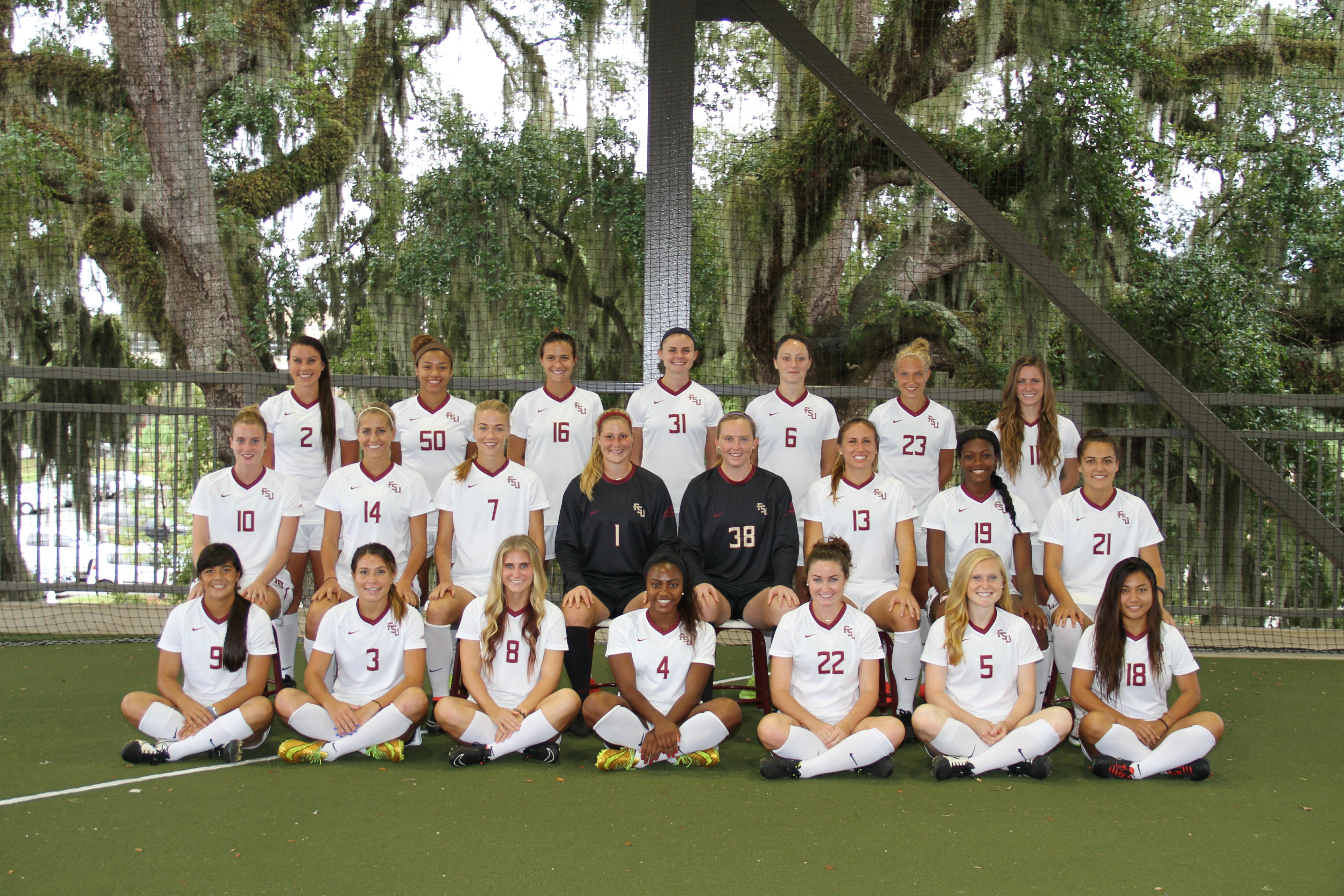 |
2014 Soccer Team |
FSU would secure its first national championship with a 1-0 victory over Virginia. It was a senior, Jamia Fields, who scored the winning goal, with an assist from Cheyna Williams. The title came in FSU’s third trip to the finals.
“The run in 2014 was probably more predictable,” said Krikorian. “We had a team that had talent. A team that had experience. We didn’t have the injuries. And finally, we had a good draw in the NCAA.”
“Culture starts with the division, and all the elements,” said Krikorian in describing developing a championship-caliber team. “You are talking about the quality of players and the quality of staff, and the commitment or buy-in. Excellence is not easy to achieve.”
The 2018 season was a challenge long before the championship trail. Krikorian put together 14 different starting lineups because of injuries and international player commitments. They would need the experience and the flexibility by the end of the season.
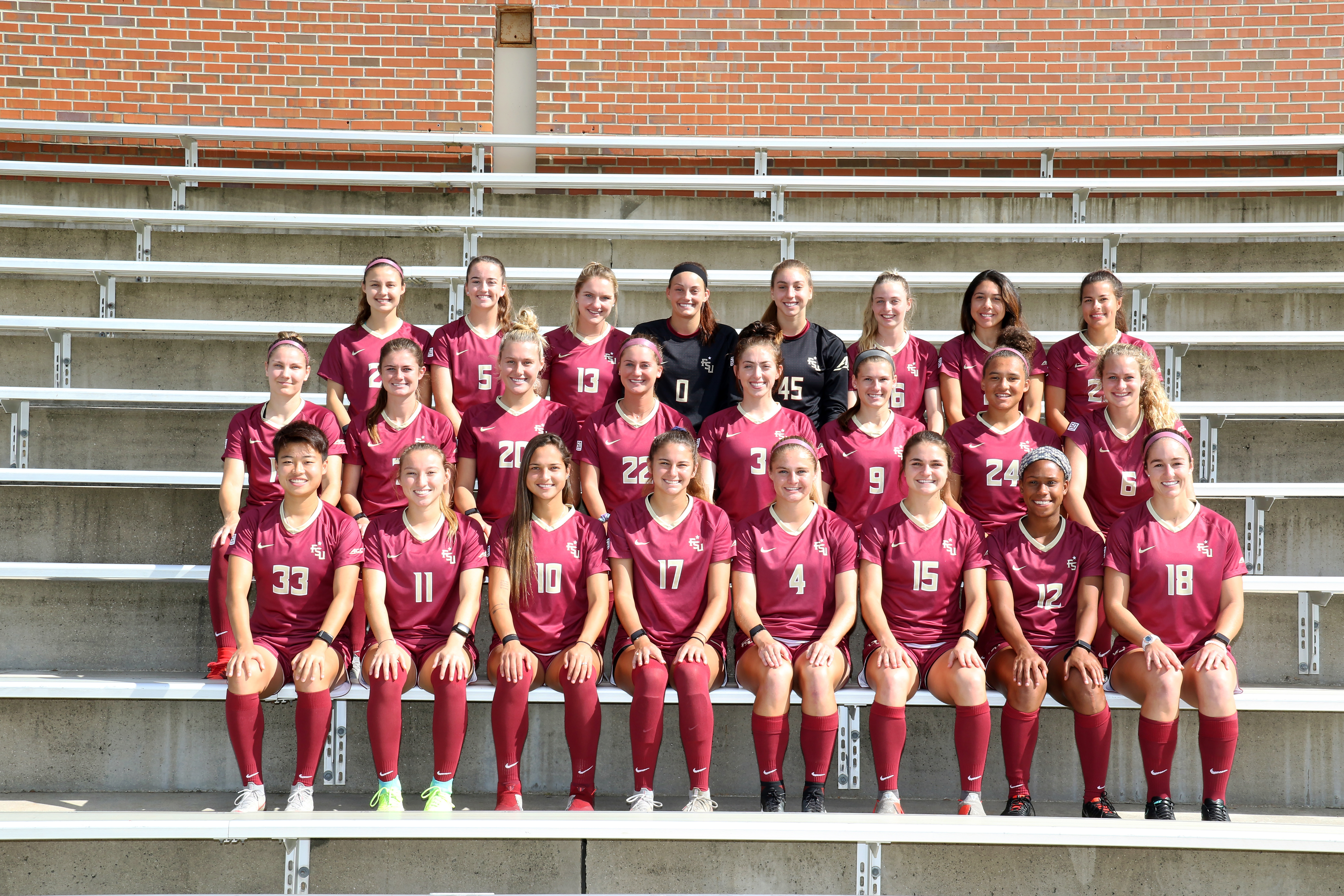 |
2018 Soccer Team |
He stressed the vision of a “goal,” but added in particular for 2018, “what happens at the end of the year means your willingness to chance making mistakes at the beginning of the year.”
In what Krikorian deemed “murderer’s row,” Florida State took down the last three national champions – Penn State (2015), Southern Cal (2016), and Stanford (2017) – to claim the top spot.
“There are many points that go toward making different challenges, and a lot of that is the sacrifice required to play to win.” Krikorian said. “We started with USC that we expected to be a No. 1 or 2 seed, but they were a No. 4 and placed in our area. Penn State and Stanford, and then North Carolina, so we had quite a run we had to get through.”
Stanford brought a 45-match unbeaten record into the NCAA semifinals but were toppled by the Seminoles, 2-0. That set up the final against North Carolina, which FSU won 1-0. It was the second time the Seminoles would beat the Tar Heels that season.
In the last championship run, at least 16 different players scored a goal. Deyna Castellanos led FSU with 28 points, 10 goals and 8 assists. Freshman Yujie Zhao pocketed the ACC freshman of the year award.
Krikorian has built championship-caliber teams on the backs of talent and international experience. FSU had players from seven countries on the 2018 championship team. Not only did Castellanos play for FSU, but she was also part of the United Women's Soccer and the Venezuelan National teams. In 2014, FSU had players from six countries.
Looking back at his career at FSU, Krikorian said the highlight might be the Stanford match.
“We had to play as best as we could be expected to because we had a quality opponent that hadn’t lost in several years," Kirkorian said. "In terms of any team I’ve coached, from high school to colleges, enthusiasts would understand, if they are purists, what a beautiful game it was.”
SOFTBALL
Florida State’s softball program has produced champions from two eras – slow-pitch and fast-pitch – led by two extraordinary coaches. One, Dr. JoAnne Graf, has the softball field named after her.
Coach Graf’s slow pitch teams won back-to-back AIAW (now NCAA) National Championships in 1981 and 1982.
 |
Joanne Graf |
“Those women were exceptional athletes, and all had played on championship teams before,” said Graf. “They knew how to win in pressure situations. They were supportive of each other and were also friends. They had high goals and they achieved them.”
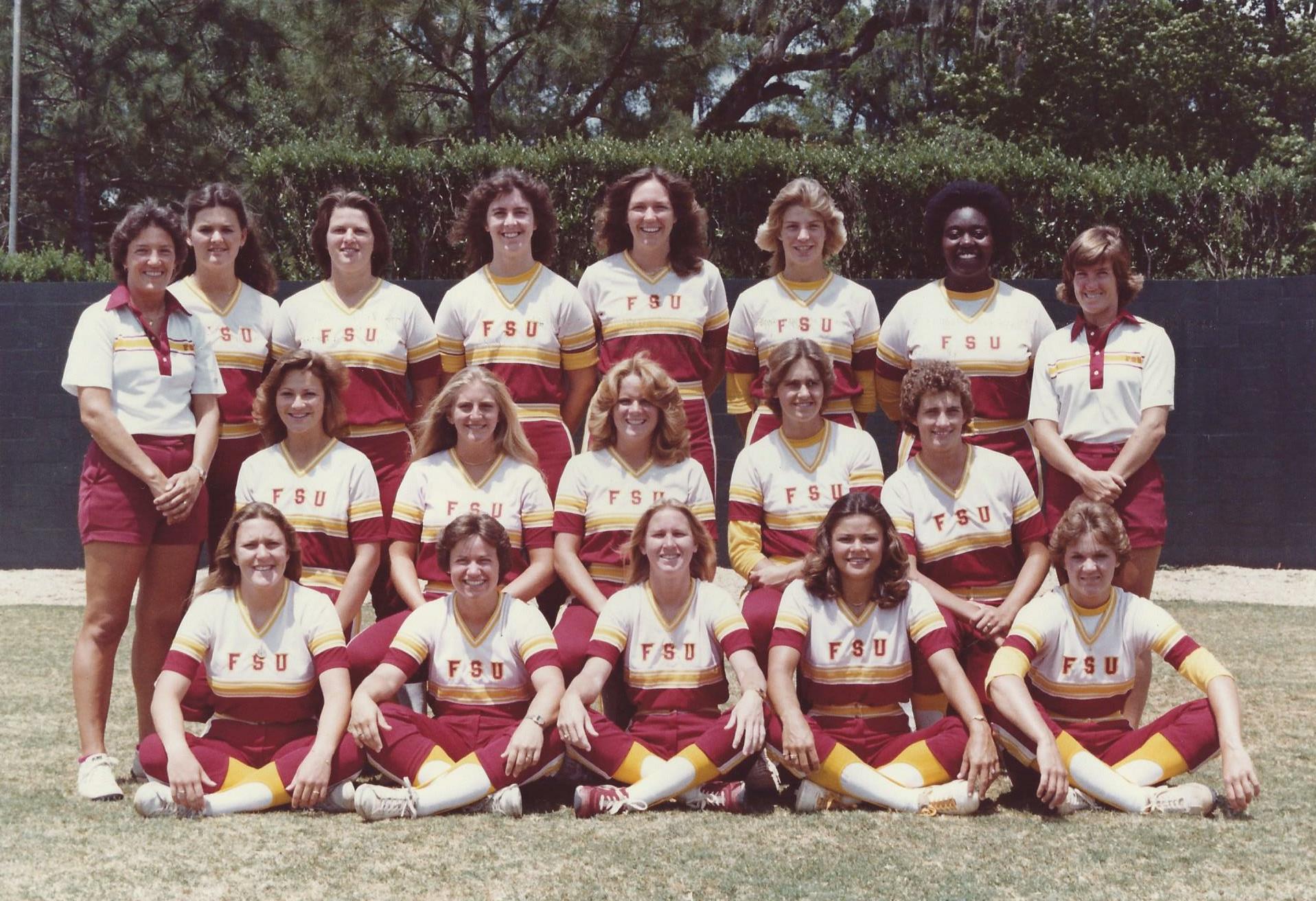 |
1981 Softball Team |
The 1981 squad entered the top-seeded team and defeated Western Carolina, N.C. State, East Carolina, and then knocked off North Carolina 4-1 in the final. The Seminoles placed five players on the all-tournament team. Darby Cottle was named the MVP.
The story line for the 1982 squad read similarly to the year before as the top-seeded Seminoles won all four games. They would take down Georgia Southern, South Florida, North Carolina Charlotte, and then topple Florida, 9-4.
“I think the players had the desire to hold onto the title. They seemed very confident in their ability to beat everyone they had to play,” said Graf. “Their focus was on playing their best and if they did that, they would be rewarded with a championship. And they were a fantastic group of young women.”
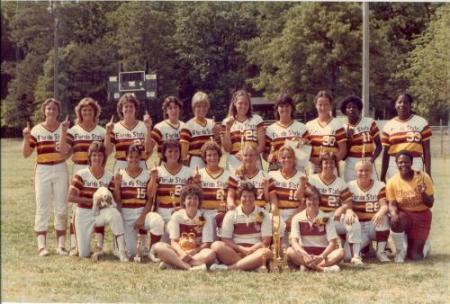 |
1982 Softball Team |
Graf became the first collegiate softball coach in the country to earn 1400 victories before retiring in 2008. Florida State advanced to the College World Series seven times under Coach Graf and made 21 NCAA Regional appearances. She was named ACC Coach of the Year six times.
Fast forward 36 years and the Seminole dominance in softball is back. With an 8-3 victory over Washington, FSU became the first ACC team to win the Women’s College World Series.
“The year before our championship, we were the ACC champions and we were expected to win,” said Lonni Alameda, now in her 11th season as head coach. Alameda guided FSU to three WCWS in the last five years. “We expected to win every game. Even when it was 1-0 in the fifth, we didn’t feel like we had done enough.”
Alameda said with that mindset, the team went into the later part of the season with skill sets and experience, and that wins a lot of games. “But once you reach the end, then everyone has those skill sets and experience," she said. "You have to stop and enjoy that you are actually there.”
 |
Lonni Alameda |
While Alameda’s teams have played in the postseason every year since her arrival in Tallahassee, and the talent level tells that story, it is her coaching style that is unique. She talks routinely about her team having fun.
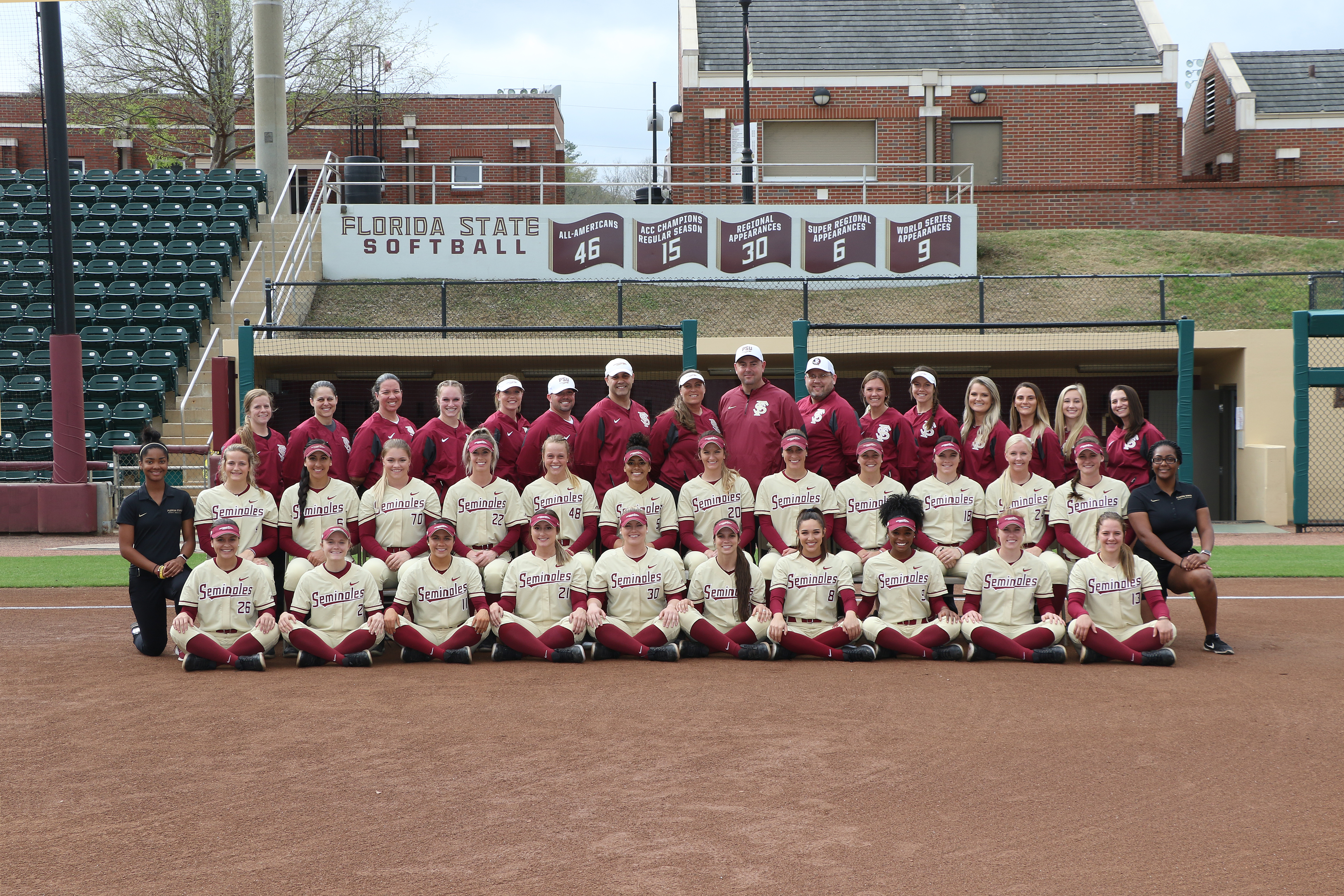 |
2018 Softball Team |
“It means enjoying the small things – that sacrifice fly or sacrifice bunt,” said Alameda.
It goes beyond that, with “Team 36” or the 2019 version because Alameda says it is an interesting challenge because they can’t play on last year. No more than last year could play on what happened in 2017.
Keeping the teams motivated, Alameda says a lot in the 50th year comes from alumni events.
“And we do have Dr. Billie Jones and Dr. JoAnne Graf who come by and share stories and they make it fun ... not just in the ‘good ole days’.”
Alameda also says her team has been aided by soccer’s national championship.
“Soccer is different in the fact they have so many international players. So when the teams get together the softball teams loves sharing stories and listening to them.” But she adds of the two teams sharing the same complex, “We actually have a very cool house.”
She appreciates the changes being made to the complex, but Alameda isn’t one to keep up with others. “In the end we have a championship and 10 years from now, we didn’t take a scoreboard with us. We remind ourselves that we did something very unique, and that we are lucky, and that it is so awesome we got to do this.”
GOLF
The 1981 Seminole golf team took a three-stroke victory over the University of Georgia for the national title. FSU entered the final round of the championship with a one-stroke lead but fell behind by two strokes. In an amazing turn of events, it was the 17th hole where four of the five Seminole golfers birdied, putting the Seminoles in first place. They’d come back from an even bigger deficit, trailing by eight strokes to Georgia and defending champion Tulsa, after the first two days.
 |
Verlyn Giles |
“We had a super team,” said Coach Verlyn Giles. “I got a call from a writer at Golf Digest asking me to pick the winner. I told him we had the best team and we’ll win. He said, ‘No, no. You can’t say that.’ We surely did win, and his headline was ‘He Told Me So.”
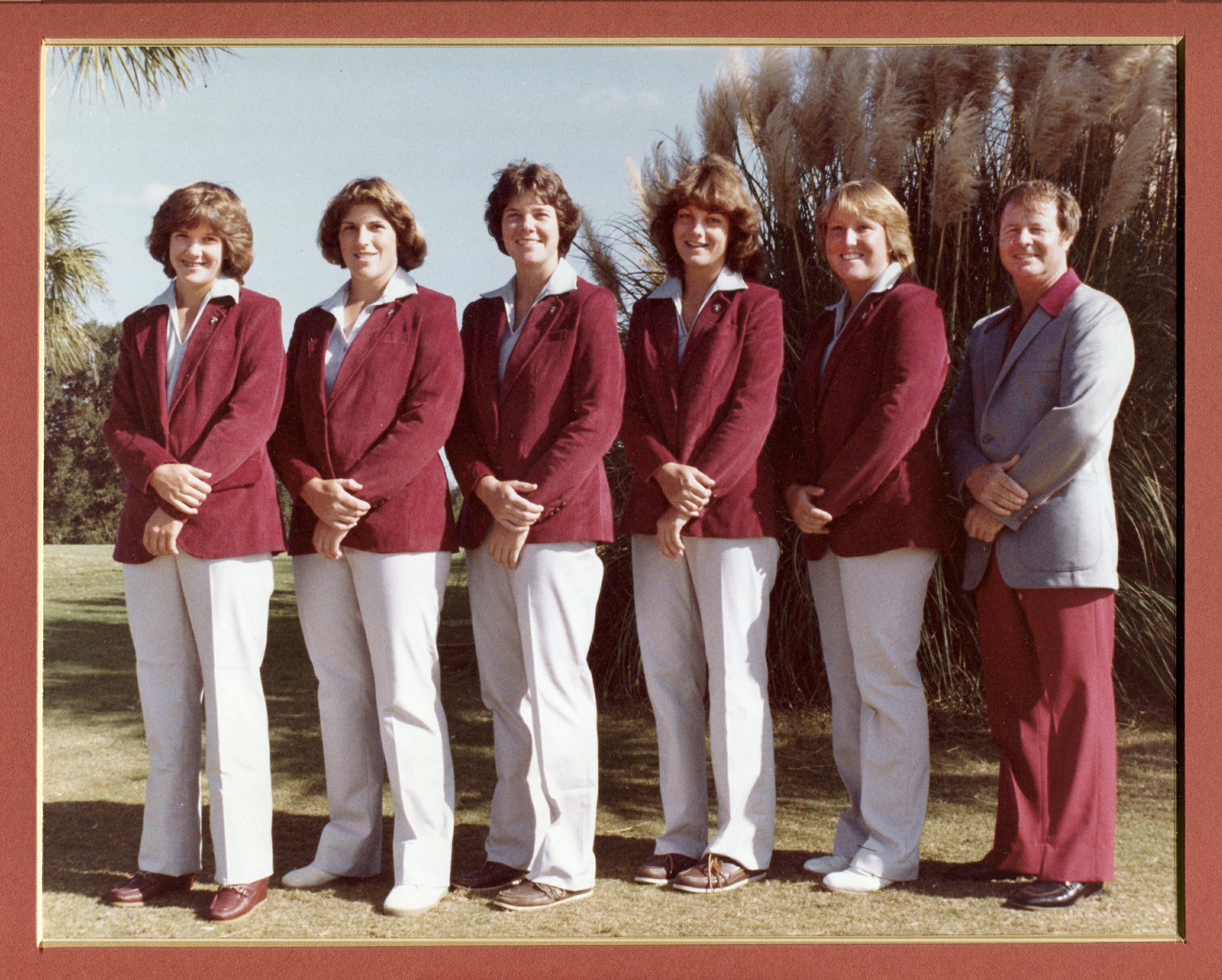 |
1981 Golf Team |
Giles coached both the men’s and women’s squads for 14 years at FSU (1978-1990). He earned his bachelor’s and master’s from FSU. Giles was named the AIAW Coach of the Year for the championship year.
The team featured some of the top golfers in FSU history, led by four all-Americans Lisa Young, Barbara Bunkowsky, Jane Geddes, and Michele Guibault. Young finished third in the individual competition and would go on to win three LPGA titles. Bunkowsky, who birdied the final five holes, would win one LPGA Tour title. Geddes won of 11 LPGA events, including the U.S. Women’s Open in 1986 and the Women’s PGA in 1987. Guilbault, a Canadian, rehabilitated from a back injury to play on the Futures Tour. All four would eventually be named to Golf’s Hall of Fame. The fifth member of the squad, Marla Anderson, a golfer from Jacksonville Fletcher High School, later became the president of the North Florida Junior Golf Foundation.
“1978 was my first team and I recruited Marla. She was a very consistent player,” said Giles. “I said if we could get about three girls who could beat Marla, we would win a national championship.”
This was the last golf championship held by the AIAW as the organization was merged into the NCAA.
“I would like to have defended and won the last title in the AIAW and the first in the NCAA, but it wasn’t to be,” said Giles. “But we sure had some girls who could play golf.”
TRACK AND FIELD
The women’s team took the 1984 NCAA Outdoor Track and Field championship, in only the third year it was held. Competing at Hayward Field (University of Oregon), the women, with 145 total points, were 21 points ahead of runner-up Tennessee and 74 points better than third place Stanford. It was the second most points, at the time, in NCAA women’s track and field competition.
 |
Gary Winckler |
“They were a very special group of young ladies,” said coach Gary Winckler. “Not only in talent but they were very serious about their goals. It was probably the easiest coaching I had.”
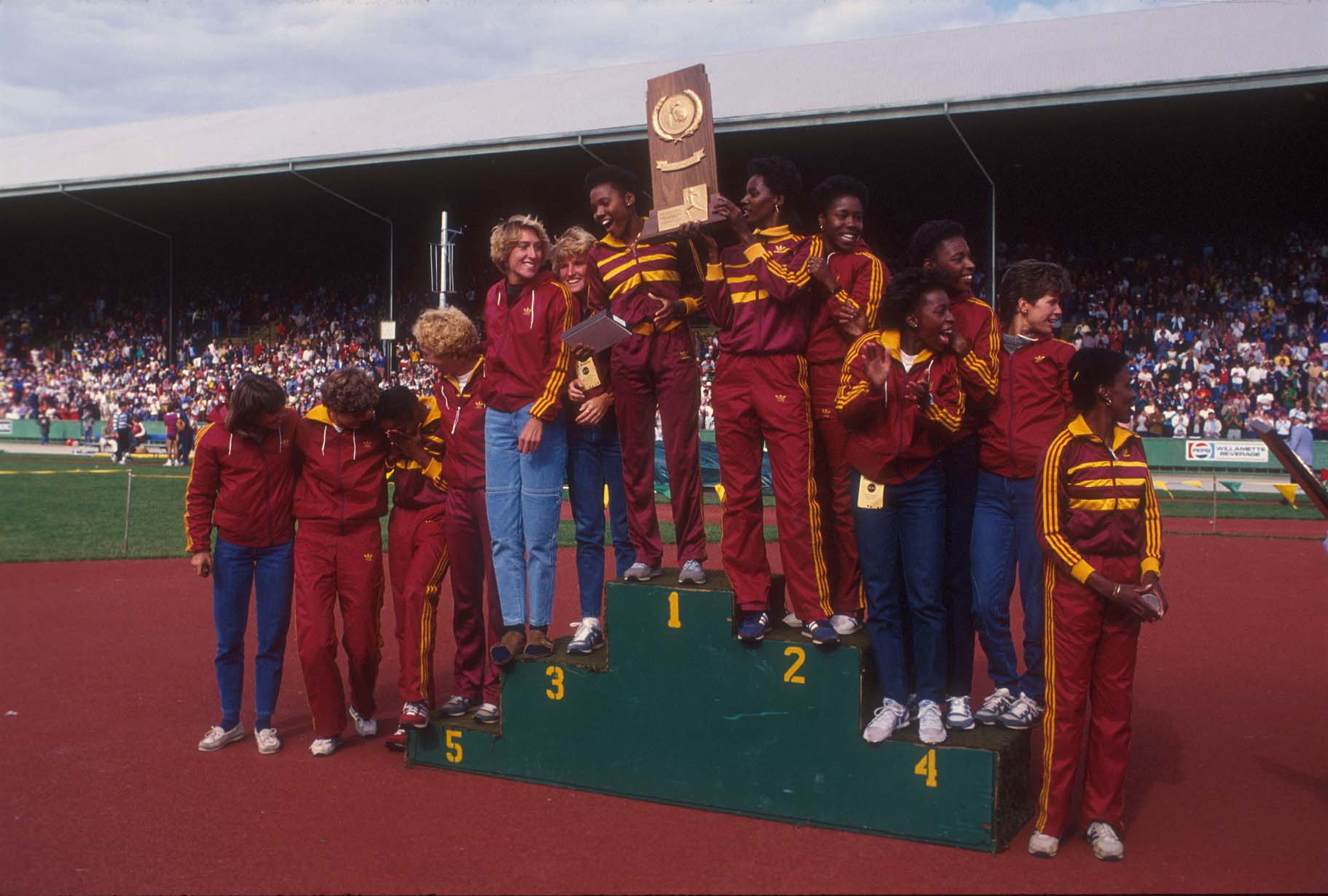 |
1984 Track and Field Team |
The year before FSU dominated the springs and relays with a record-setting mark in the 4x100. On June 2 of the championship year, Michelle Finn, Marita Payne, Brenda Cliette and Randy Givens defended the 400-meter and 1600-meter relay titles. Givens would win the 100 meters, while Cliette finished second and Finn was fourth. In the 200 meters, FSU put together a team effort with Givens winning again. Cliette (second), Payne (third), Finn (sixth) and Janet Davis (ninth) added to point total.
Winning ways continued in March 1985 when the Seminole women took the NCAA Indoor Championship title. Finn, after the graduation of Givens and Payne, won the 55 meters, and triple jumper Esmeralda Garcia’s victory led the women to a second national title.
“Things just fell into place for us. (Michelle) Finn was just a freshman and took the 55 dash,” added Winckler. “At that time, we didn’t have an indoor track, and no more than two or three meets that allowed indoor training, or running on that kind of track. Indoor was the biggest challenge.”
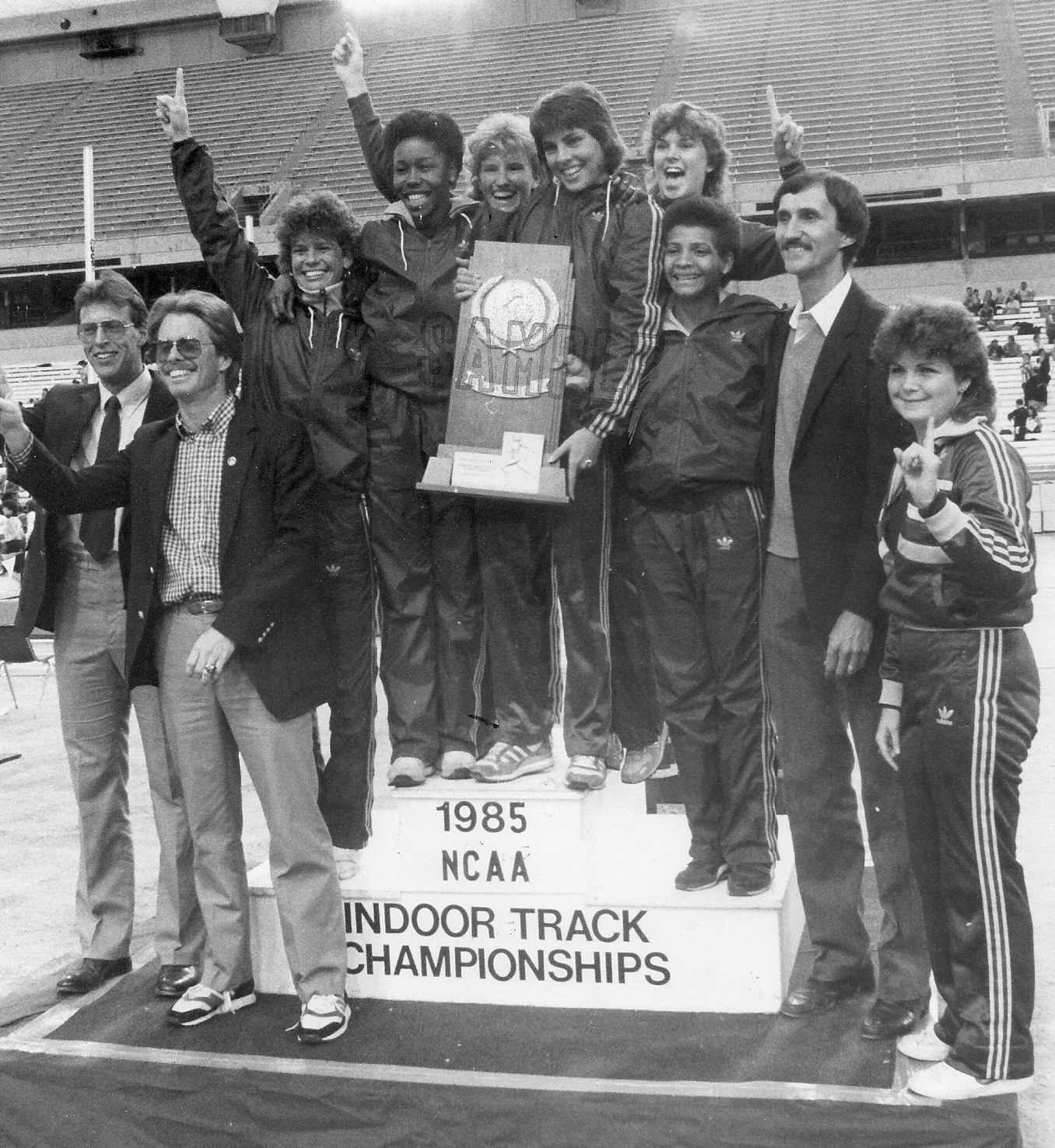 |
1985 Track and Field Team |
Winckler’s program produced over 100 all-Americans. Winckler was named NCAA Coach of the Year in 1984-85. In addition to those team titles, the women placed second in the 1983 and 1985 NCAA Outdoor Championships.
“They were easy to coach and easy to work with. They were very self-motivated and knew their goals,” Winckler concluded.
Women athletes are in a lane or on a field or a court plying their skills toward a common goal of a team championship, even as you read this. Hopefully, this Florida State history is just a small part of the story still to be written.
 |